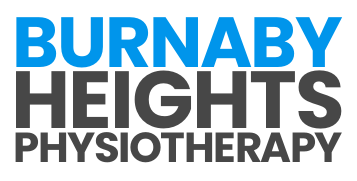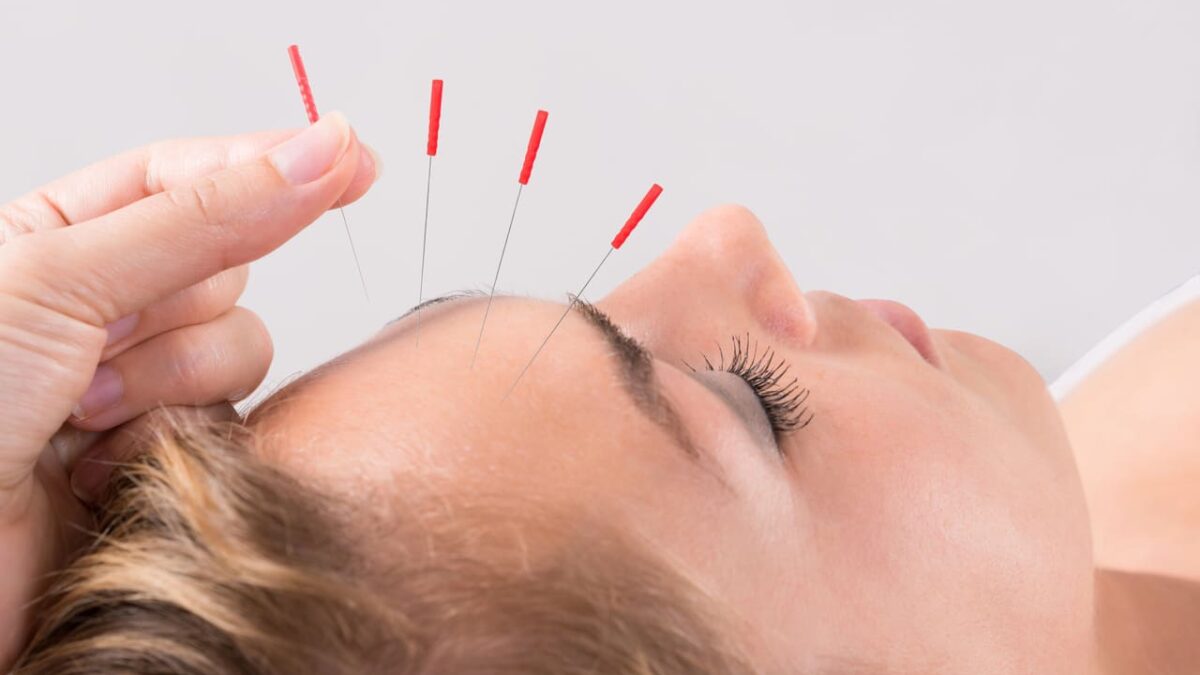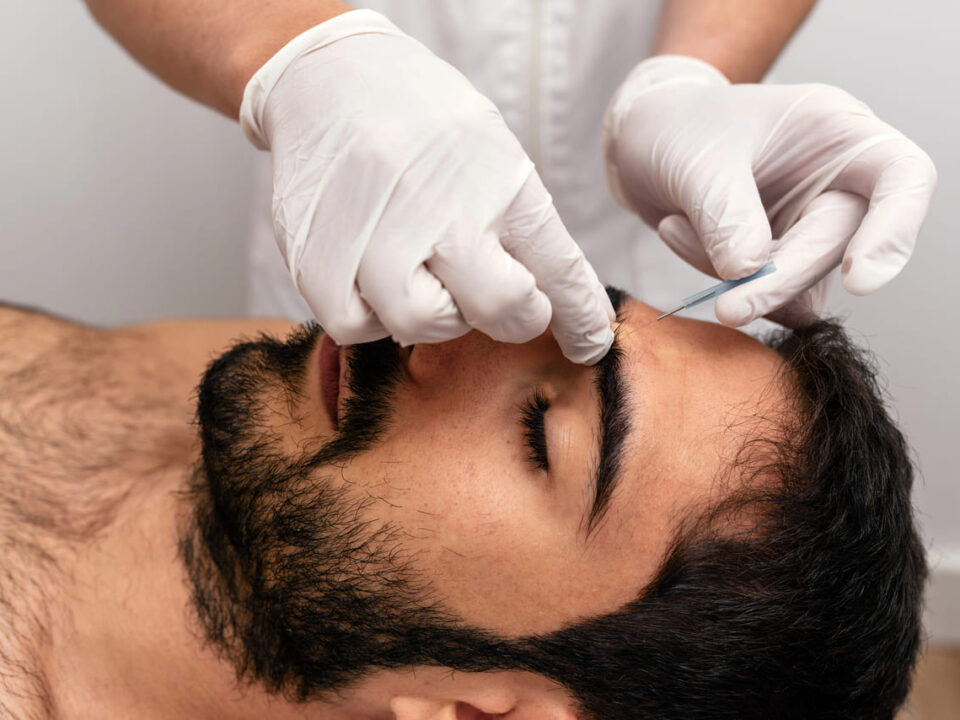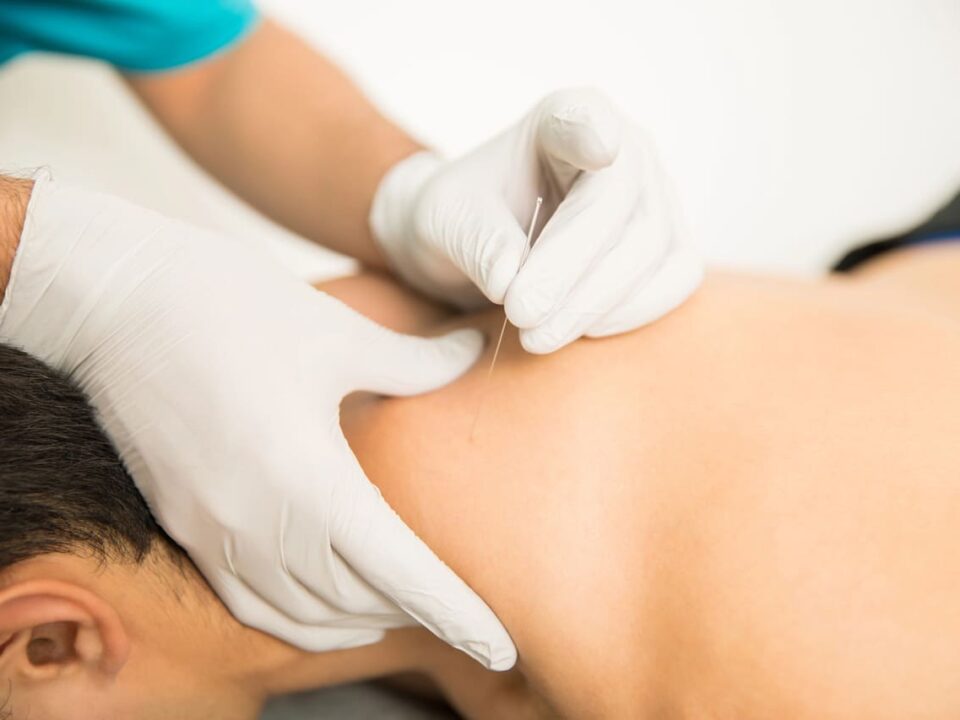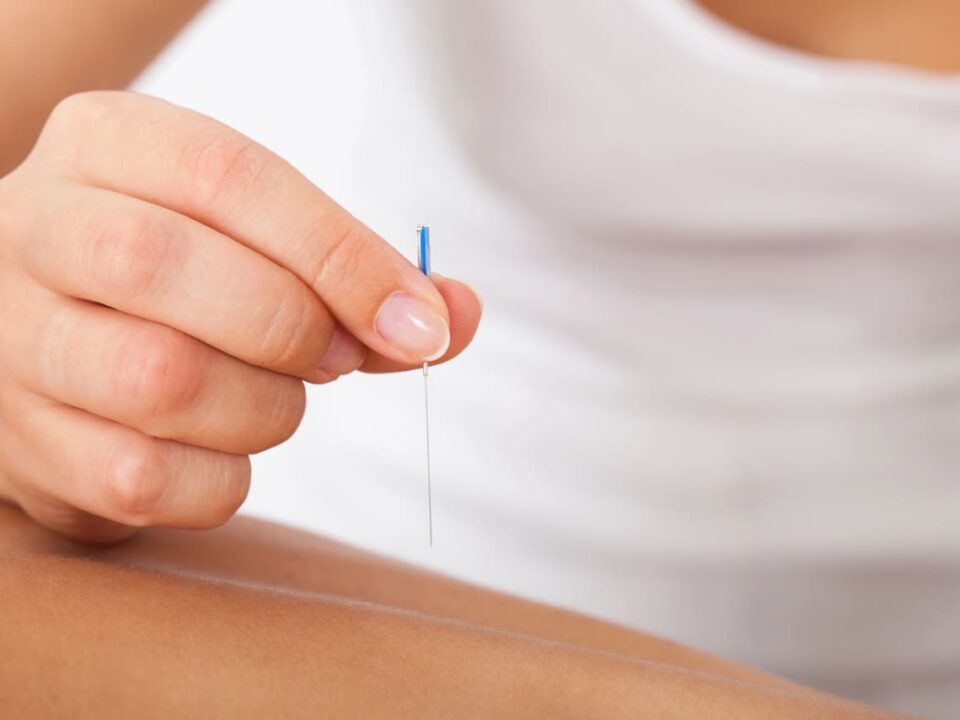
From Pain Relief to Rehabilitation: Understanding Physiotherapy Techniques
June 14, 2025
Tips for Supporting Physiotherapy: Lifestyle Changes, Daily Habits, and More
July 18, 2025Acupuncture has long been a subject of fascination and skepticism, with its roots in ancient Chinese medicine yet its applications extending into modern health practices. As more people seek alternative therapies for various ailments, acupuncture continues to spark debates and curiosity. In this blog, we will explore some of the most common myths surrounding acupuncture, shedding light on whether these beliefs hold any truth. By examining these myths, we aim to provide a clearer understanding of acupuncture and its potential benefits, helping you make informed decisions about incorporating it into your health routine.
Is Acupuncture Just a Placebo Effect?
The notion that acupuncture’s benefits are merely the result of a placebo effect is a prevalent myth. Critics argue that any positive outcomes from acupuncture sessions stem from a person’s belief in the treatment rather than the treatment itself. However, this view oversimplifies the complex mechanisms at play. Clinical studies have shown that acupuncture can lead to measurable physiological changes, such as the release of endorphins, modulation of neurotransmitter levels, and improved blood flow. These changes suggest that acupuncture has tangible effects beyond placebo.
Moreover, acupuncture’s efficacy has been documented in treating conditions that are less susceptible to placebo responses, such as post-operative pain and chemotherapy-induced nausea. Research involving functional MRI scans has observed changes in brain activity following acupuncture, supporting the idea that the treatment can affect the nervous system. While the placebo effect may contribute to acupuncture’s overall impact, dismissing the practice as just a placebo overlooks the scientific evidence supporting its therapeutic potential.
Does Acupuncture Only Work for Pain Relief?
Acupuncture is often associated with pain relief, but its applications are far more diverse. Here are several ways acupuncture can benefit various health conditions:
- Stress Reduction: Acupuncture can help regulate the body’s stress response by balancing hormones and reducing anxiety levels. This makes it a valuable tool for managing chronic stress and improving mental well-being.
- Digestive Health: By promoting the flow of energy throughout the body, acupuncture can alleviate symptoms of indigestion, bloating, and irritable bowel syndrome. It aids in the regulation of digestive functions and can improve overall gut health.
- Respiratory Conditions: Acupuncture has been used to manage symptoms of asthma, allergies, and sinusitis. It can enhance respiratory function and reduce inflammation in the airways, providing relief for those with chronic respiratory issues.
- Hormonal Balance: Women experiencing menstrual irregularities or menopausal symptoms may find relief through acupuncture. By influencing the endocrine system, acupuncture can help regulate hormone levels and alleviate related symptoms.
- Improved Sleep: Acupuncture can promote better sleep quality by addressing underlying issues such as stress, anxiety, and certain physical discomforts that interfere with restful sleep.
- Immune System Support: By stimulating the body’s natural defences, acupuncture can enhance the immune response, helping to prevent illness and support recovery.
- Addiction Recovery: Acupuncture has been used as a complementary treatment for addiction, helping to reduce withdrawal symptoms and cravings by balancing the body’s energy systems.
- Fertility Support: Some couples turn to acupuncture to improve reproductive health and increase the chances of conception by enhancing blood flow to reproductive organs and reducing stress.
While acupuncture is well-known for pain relief, its diverse applications make it a versatile treatment option. Consulting with a qualified practitioner can help determine its potential benefits for your specific health needs.
Is Acupuncture Painful?
One of the most common concerns about acupuncture is the fear of pain, stemming from the misconception that needle insertion must be uncomfortable or even painful. In reality, acupuncture needles are incredibly thin, much finer than those used for injections or blood tests. Most people report feeling only a mild sensation upon needle insertion, often described as a tingling or a slight pressure rather than pain.
The skill of the practitioner plays a significant role in minimizing discomfort. Experienced practitioners are trained to insert needles with precision, targeting specific points on the body to achieve desired effects while ensuring client comfort. The sensation of acupuncture is often so subtle that many individuals find the experience relaxing, with some even falling asleep during sessions.
It’s also worth noting that the body’s response to acupuncture can vary, and some areas may be more sensitive than others. However, any discomfort is usually brief and subsides quickly. The therapeutic effects of acupuncture, such as pain relief and relaxation, often outweigh any temporary sensations felt during needle insertion. Overall, acupuncture is considered a low-pain and low-risk treatment when performed by a qualified professional.
Are Acupuncture Results Immediate?
Acupuncture’s effects can vary widely, leading to the misconception that results should be immediate. However, the reality is more nuanced. Here are some insights into how acupuncture results typically unfold:
- Initial Relief: Some people experience immediate relief from symptoms after a session, particularly with pain management. This can be due to the body’s rapid response to the treatment.
- Gradual Improvement: For many, the effects of acupuncture are cumulative, with improvements becoming more noticeable over a series of sessions. This gradual change is common for chronic conditions where long-term treatment is required.
- Individual Variation: The time it takes for acupuncture to produce results can vary based on individual health conditions, the severity of symptoms, and the body’s responsiveness to treatment.
- Acute vs. Chronic Conditions: Acute issues may respond more quickly to acupuncture, while chronic conditions might require a longer-term approach to see significant improvements.
- Frequency of Treatment: Regular sessions can enhance the effectiveness of acupuncture, with more frequent treatments often leading to faster results.
- Holistic Benefits: Beyond symptom relief, acupuncture can promote overall well-being, which might manifest in subtle improvements such as enhanced mood or better sleep before major symptom relief is noted.
While some people may experience immediate benefits, many find that acupuncture’s full potential unfolds over time. Consistency and patience are key factors in achieving optimal outcomes, and a personalized treatment plan can help guide the process.
Is Acupuncture Unsafe or Risky?
Concerns about the safety of acupuncture often arise due to misconceptions and misinformation. Here, we address some common safety-related questions:
- Professional Standards: Acupuncture is generally safe when performed by a licensed and trained practitioner who adheres to professional standards and guidelines.
- Minimal Side Effects: The side effects of acupuncture are typically mild and may include slight bruising or temporary soreness at needle sites. Serious complications are rare.
- Sterile Needles: Licensed practitioners use sterile, single-use needles to prevent the risk of infection or disease transmission.
- Medical History Consideration: Practitioners take a comprehensive medical history to tailor treatments appropriately, minimizing the risk of adverse effects.
- Regulatory Oversight: Acupuncture is regulated in many regions, with practitioners required to meet specific educational and certification standards.
- Contraindications Awareness: Practitioners are trained to recognize contraindications and adjust treatments accordingly, ensuring client safety.
- Informed Consent: Clients are informed about the procedure, risks, and benefits, empowering them to make informed decisions about their treatment.
While any medical treatment carries some level of risk, acupuncture is considered a low-risk therapy when administered by a qualified professional. Ensuring that you choose a licensed practitioner can help mitigate potential risks and enhance the overall safety of your treatment.
Can Anyone Perform Acupuncture?
The practice of acupuncture requires specific training and expertise, distinguishing it from practices that anyone can undertake. Here, we explore who is qualified to perform acupuncture:
- Licensed Practitioners: Acupuncture should be performed by licensed and certified professionals who have completed extensive training in the field.
- Educational Requirements: Practitioners undergo rigorous educational programs that include anatomy, physiology, and clinical practice to ensure comprehensive knowledge.
- Certification: In many regions, practitioners must pass national or state certification exams to practice legally, ensuring they meet professional standards.
- Continuing Education: Licensed practitioners often engage in continuing education to stay updated on the latest research and techniques in acupuncture.
- Specialization: Some practitioners may specialize in particular areas, such as fertility or pain management, requiring additional training and expertise.
- Regulatory Compliance: Practicing acupuncture without proper credentials is illegal in many places, reinforcing the importance of professional oversight.
- Quality of Care: Qualified practitioners can provide personalized care, tailoring treatments to individual needs for the best outcomes.
Selecting a certified practitioner is crucial for ensuring the efficacy and safety of acupuncture. This not only protects clients but also upholds the integrity of the practice.
Are Acupuncture Needles Reused?
The reuse of acupuncture needles is a myth that raises concerns about safety and hygiene. In reality, reputable practitioners adhere to strict protocols to ensure client safety. Modern acupuncture practice uses sterile, single-use needles that are disposed of immediately after a session. This standard practice eliminates any risk of cross-contamination or the transmission of infectious diseases.
Acupuncture needles are typically made of stainless steel and are individually packaged to maintain sterility. Once used, they are placed in designated sharps containers for safe disposal, following healthcare regulations. This procedure aligns with international safety standards and is an integral part of professional acupuncture practice.
Licensed practitioners undergo comprehensive training in sterilization and hygiene to protect both themselves and their clients. Choosing a certified practitioner ensures adherence to these safety protocols, providing peace of mind for individuals seeking acupuncture treatments.
Is Acupuncture Addictive or Habit-Forming?
Concerns about acupuncture being addictive are unfounded, as the practice does not create dependency. Here are some points clarifying this common misconception:
- No Chemical Dependency: Acupuncture does not involve substances that could lead to addiction, making it inherently non-addictive.
- Natural Healing Process: The treatment promotes the body’s natural healing processes without introducing foreign chemicals or substances.
- Voluntary Continuation: People often continue acupuncture due to its benefits and not because of dependency or withdrawal symptoms.
- Different from Medication: Unlike some medications, acupuncture doesn’t cause physiological cravings or require increasing doses over time.
- Holistic Benefits: The holistic nature of acupuncture means it addresses more than just symptoms, contributing to overall well-being without forming habits.
- Client-Directed: Treatment frequency and duration are typically client-directed, with individuals choosing to continue based on personal health goals.
- Supportive of Other Treatments: Acupuncture can complement other therapies, allowing people to reduce reliance on potentially addictive medications.
Acupuncture’s non-addictive nature makes it an appealing option for those seeking sustainable, holistic health solutions without the risk of dependency.
Can Acupuncture Interfere With Other Medical Treatments?
Acupuncture is generally considered a complementary therapy, meaning it can be used alongside conventional medical treatments to enhance overall health outcomes. Rather than interfering, acupuncture often complements other therapies by addressing additional aspects of a person’s health. For instance, it can reduce the side effects of chemotherapy, such as nausea and fatigue, without impacting the efficacy of the primary treatment.
However, open communication with healthcare providers is crucial when integrating acupuncture with other medical treatments. This ensures that all parties are aware of the individual’s full treatment plan and can collaborate to optimize care. Practitioners are trained to consider a person’s existing medical conditions and medications, tailoring treatments to avoid potential contraindications.
Some conditions may require caution, and individuals with bleeding disorders, pacemakers, or those who are pregnant should inform their practitioner and healthcare team. Overall, when used responsibly and in conjunction with medical advice, acupuncture can enhance the benefits of conventional treatments without causing interference.
Safe and Effective Treatment
Understanding the myths and realities of acupuncture can help individuals make informed decisions about incorporating this ancient practice into their modern health routines. Acupuncture offers a holistic approach to health, with scientific evidence supporting its efficacy for various conditions.
At Burnaby Heights Physiotherapy, we are dedicated to providing personalized acupuncture treatments tailored to your unique needs. If you’re in Burnaby and interested in exploring the benefits of acupuncture, contact us for an appointment and let our experienced practitioners guide you on your journey to better health.


